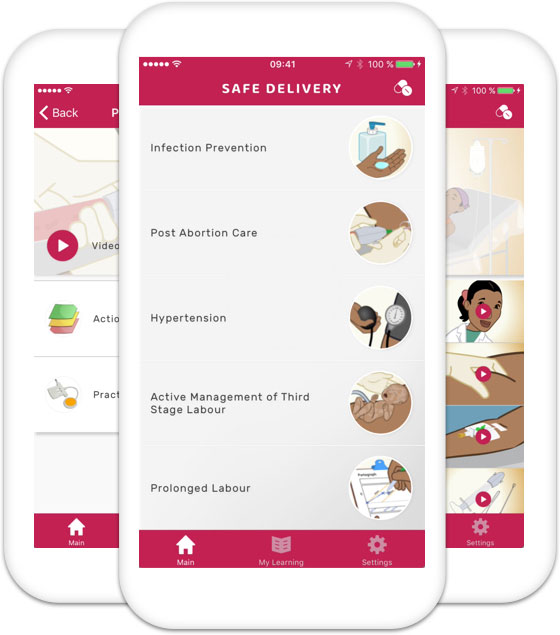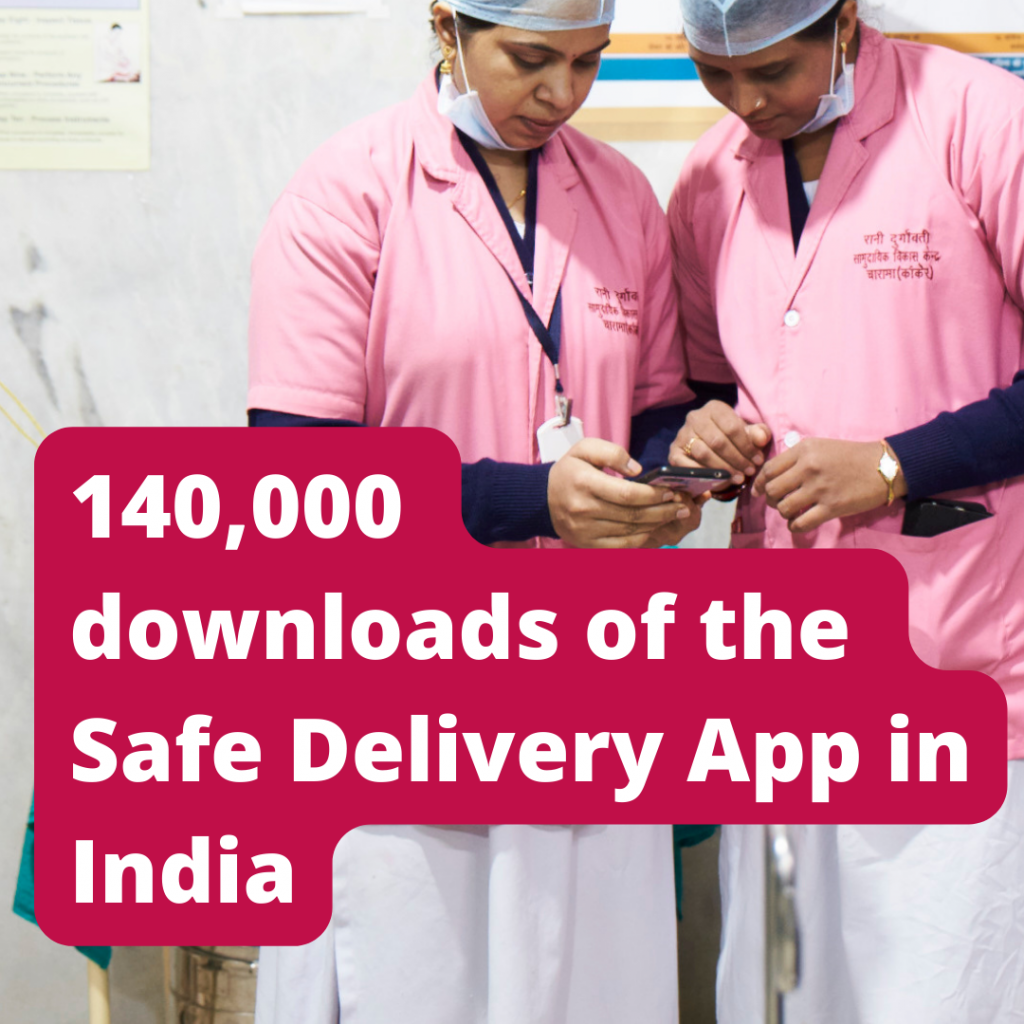American computer scientist and professor Alan Perlis famously said that a year spent in AI (artificial intelligence) was enough to make one believe in God…
It might be a little too (uncomfortably) close to the truth, considering that now questions are arising about the societal and ethical implications of AI. However, there is no denying that AI also has the potential to transform healthcare and well-being.
We are talking specifically about the Safe Delivery App, a training and learning tool and a job aid, all combined into one, for midwives and other healthcare professionals.
Backstory
A major chunk of all newborn and maternal deaths can be prevented if women receive quality healthcare. However, there is a lack of almost a million midwives around the world. What’s more, many people who currently practice midwifery do not possess the necessary knowledge or skills, making the situation all the more critical. This is an urgent goal, considering nearly 6,400 newborns and 800 women are dying every daily day from birth-related and pregnancy complications.
This was the basis of thought for Finnish AI startup Neuvo Inc. Global and International NGO Maternity Foundation, who are currently exploring this potential. They have joined hands to develop a unique AI-powered application to help ensure safer childbirth in settings with fewer resources.
All About the Safe Delivery App
The Maternity Foundation carefully used technology for over a decade to build midwifery skills and knowledge via the Safe Delivery App. This app, which is free to download and use even offline, ensures that midwives living and working in fragile and poor areas, with most neonatal and maternal births, have access to it.
This learning and training tool-cum-job aid for midwives and other healthcare workers is not only an essential and critical guide to handling birth delivery but also other common complications. It does so by using descriptions of practical procedures and animated instruction videos, among other features.
With support from the United Nations Population Fund (UNFPA), the UN’s reproductive and sexual health agency, and other key partners, the Safe Delivery app has now reached more than 435,000 healthcare working professionals across more than 70 countries. That being said, the Maternity Foundation is always looking for ways to advance and boost this useful tool further.
The NeMa Smart Bot: A Step Further
With the Maternity Foundation’s vision in mind, Neuvo Inc. Global took the second step in this direction. It developed the NeMa Smart Bot, an AI-powered conversational smart bot, which will eventually be integrated into the Safe Delivery App. The objective?
To answer pregnancy and birth-related questions instantly. Since time is critical when it comes to managing complications surrounding pregnancy and birth, the idea and hope are that this smart bot will elevate the assistance provided through the app to midwives and other healthcare professionals, ultimately aiding safer births.
What about the authenticity of the information? The very objective of the app has been evidence-based guidance right from the outset. Both organizations have ensured that the answers that the NeMa smart bot provides are based on audited clinical material and have been scientifically verified. In fact, the content behind the smart bot’s answers was screened and eventually cleared by the clinical team at the Maternity Foundation.
Plus, they were even aligned with the country’s national guidelines. In other words, the smart bot has been developed in and as a closed system, as opposed to open-ended answers generated via internet searches. And since it also works offline, it still remains accurate in areas with no or limited connectivity.
The Effect
Can this useful AI tool help bridge important healthcare gaps in India? Quite possibly.
Since the Maternity Foundation has focused on strengthening midwifery skills and knowledge in those parts of the country that lag behind others, in tandem with Indian authorities, they knew what they were doing. As a matter of fact, the NeMa smart bot was pilot-tested with Indian authorities in two rounds over the course of 2023, along with support from UNFPA and the pharma company Organon.
In case you missed:
- Will AI Be the End of Web Searches?
- The Ethics of AI in Healthcare
- Gender Bias In AI and The Fight For Equality
- From Ranking to Relevance: The Rise Of Generative Engine Optimisation
- The Future of Wearable Tech in Personalised Care
- The Next Phase of AI: Deep Research
- Guiding Light: How Photonics is Revolutionising Data Centres
- Millennials And Gen Z Are Using AI For Investment. How Prudent Is It?
- Blockchain-Based Digital Identity: The Future Of Verification Is Here
- Are Cryptocurrencies Becoming an Asset Class?












